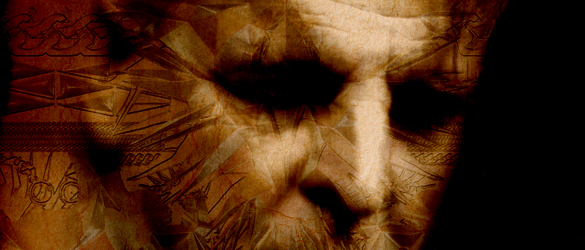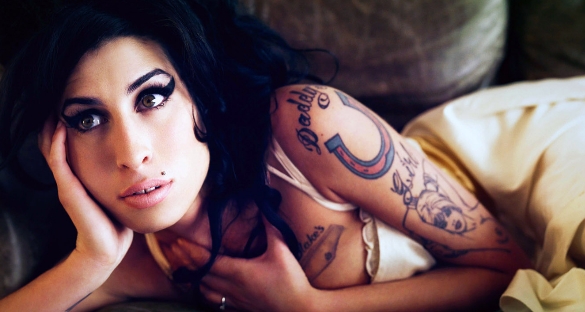As fate would have it, this August I was reading a collection of William Butler Yeats’s poetry around the same time that Watch the Throne, Jay-Z and Kanye West’s collaborative album, dropped. In all probability, you, like me, assign the newest hip-hop a separate sphere of thought in your cognitive landscape from even late Yeats. Since August I have realized the necessity of breaking those spheres down, as one song from the album demanded comparison to one of his poems.
Both the song “New Day” and the poem “A Prayer for my Daughter” are addressed to the children of the artists. Yeats wrote with his young daughter in mind, while Kanye and Jay-Z both address unborn sons. At the time of the album’s release, he and Beyonce had yet to make her pregnancy public, but it doesn’t seem beyond reason to assume that Jay-Z knew he was going to have a child when he recorded the song. Thus we have the establishment of an elementary similitude: artists in both 1922 and 2011 are interested in making art about the lives of their children.
In “New Day,” the enthroned rappers express concerns for their children that transparently reflect the issues and struggles of their own lives. Both straightforwardly project their own regrets and flaws through their lyrics, which is perhaps the most endearing characteristic of the song. Superficially, it seems like domineering or short-sighted parenting to say “these are my mistakes, don’t repeat them,” but it is done in such a plain-faced way that it is clear that they are only talking about regrets from their own lives, not announcing plans for their sons. West wants his son “to have an easy life, / not like Yeezy Life,” and Jay-Z trills, “Took twenty-six years to find my path / My only job is cut the time in half.”
Then what of Yeats? Is he working from the same model of parenting as a chance for introspection? Yes and no. No in that he is distinctly more veiled about where his recommendations come from, and it is only in the seventh and eighth stanzas that he makes it explicit that he is speaking from his experience. From the seventh stanza: “My mind, because the minds that I have loved,” and from the eighth: “Have I not seen the loveliest woman born?” Thus it seems that these admissions of subjectivity are withheld to the second part of the poem in order to inform the first half, making clear that the lines about Helen of Troy in the fourth stanza are a thinly veiled allusion to the life of Maude Gonne, his life-long love that never came to fruition.
So Yeats lacks the straightforwardness of hip-hop counterparts. This causes his claims at the end of the poem to seem as if they coming from some sort of omniscient speaker, who truly knows what is best for his daughter. He presents her with a narrow ideal of what life should be, an ideal which any reader with even the slightest inkling of feminist sympathy will no doubt latch on to and spit back out in disgust (feminist objections to this poem could rightfully make up another essay entirely). So while it seems that Yeats is coming from a perspective that is more thought out than the rappers, it is one that is distinctly more egotistical.
And may her bridegroom bring her to a house
Where all’s accustomed, ceremonious;
For arrogance and hatred are the wares
Peddled in the thoroughfares.
How but in custom and in ceremony
Are innocence and beauty born?
Ceremony’s a name for the rich horn,
And custom for the spreading laurel tree.
He clearly only wants his daughter to fulfill his ideal of happiness, one which is apparently dependent on a husband.
Contrast this with Jay-Z’s closing message. “I just pray we was in love the night that we conceived him.” He wants his child to come out of love, and feel nothing but love from him as he grows: “Promise never to leave him even if his momma tweakin’ / cause my dad left me and I promise never repeat him.” Jay-Z shows in this song a keen ability to empathize that neither his partner West nor his predecessor Yeats show any interest in. West is still too wrapped up in characterizing himself as the terrible person he believes people see him as to really be thinking about having offspring, so I’m going to leave him out of the rest of the discussion.
Sure, you can argue that Yeats desires nothing for his daughter but to have a “self-delighting, / Self-appeasing, self-affrighting” soul, but still his vision for her happiness is narrow. Jay-Z pledges support; Yeats offers his specific philosophical vision for happiness. Both use the task of parenting as an instigating event for self-reflective pieces, but Jay-Z shows himself to be the artist more aware of the stakes inherent to such a task. Yeats has heaped expectations onto his daughter with his poem without the basic self-awareness of this which the emcee demonstrates from the outset. “I’m sorry junior, I already ruined ya.”
This is, of course, an argument that considers only one aspect of each of the works, the message, and largely ignores issues of genre, form and the time in which they were written, but there is an important point here. Like all genres of music, hip-hop contains within it many performers who can only claim the title “artist” out of convention, but at least at the top, on the throne, and in other, less-visible places which I will discuss in the future, there are artists deserving of the title.
“New Day” by Jay-Z and Kanye West.
“A Prayer for my Daughter” by William Butler Yeats.




Really when someone doesn’t be aware of after that its up to
other users that they will help, so here it occurs.